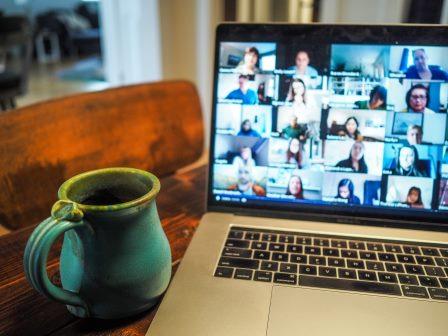2020 was the year of WFH (among other things!). Very quickly, businesses had to adapt to their staff working remotely or risk being left behind – and interestingly, many of the big names decided that rather than this being a short term measure, working from home was actually a huge long-term opportunity.
The recognition that employees can work from home and still perform effectively has no doubt contributed to the majority of employers now looking at a permanent shift to flexible working, according to various surveys by The Times, BBC and IoD to name but a few. However I think it’s the realisation that working from home means employees are in fact more productive which has prompted this move!
I write as someone who has personally never worked in an office. For over 20 years now, the entire team of QTS has worked at home and it is something frequently commented on as to what employees enjoy most about the job! And what’s not to like – a better work/life balance, flexible hours, no commute, even better health – I know it’s what I would choose time and time again.
For the company, it also brings benefits: happier staff are more motivated and definitely more productive. Compared to other telephone services companies, we have an exceptionally low staff turnover, which is something to be proud of. And, very importantly, our clients really like the model, knowing that our fundraisers make their calls from the comfort of their home, rather than a busy, noisy, pressured call centre.
Of course home-working isn’t without its pitfalls and it isn’t for everyone; while some employees will thrive in a home environment, others will miss the interaction, buzz and social aspect that office life provides. We have seen how it can be difficult for some new starters to learn the ropes remotely – even with all the right IT systems in place.
So if you’re struggling with WFH, I thought it might be timely to share a few easy hacks to help keep up productivity and embrace this new way of working – whether it’s here to stay or not:
- Although perhaps by now some of us are experiencing an element of Zoom fatigue, I can honestly say video conferencing has changed my working life. Pre 2020, I would trek from Cornwall to London (and beyond) several times a week for client meetings. Now I can have the same number of calls in one day that would have taken weeks’ worth of travelling to meetings – it’s been a complete game-changer.

On the other hand, conferences calls can be really intrusive in your schedule; for some reason they are more time-consuming than a phone call, and can be pretty disruptive to the flow of the day. My approach to this is to batch calls together and allocate specific days for video meetings – freeing up the remainder of the week for focussing on more complex pieces of work and improving my overall productivity. I also bear in mind that meetings don’t always need to be on video – a quick phone call can often achieve the same outcome.
- Something I am sure anyone new to WFH has battled with is how to stay focussed when you are not in a traditional office environment, and I have a few tips to share: firstly, and most importantly, is to organise the space that you working in. Limiting distractions and the various reasons to leave your desk is essential; so for me, I make sure I have all my equipment – which includes drinks and snacks! – at hand and I switch off all notifications on my phone, which otherwise invite me to fall into the rabbit hole of social media and internet news.

- That said, taking a regular break is something I positively encourage! It’s been shown time and time again that employees frequently over-compensate by working harder and longer at home than they would in the office – so giving yourself small rewards for achieving goals throughout the day is key to avoiding burn-out. It might be a cup of tea outside in the sunshine or going for a walk – these things serve to break up the day and provide more of the work/life balance which we all seek.
In summary, despite the homeworking model being with us for many years, it is still relatively new for the majority and there is much to learn as to how to make it work well for everyone. The good news is that technology will vastly improve the viability of WFH in the future; we’ve already seen new online communication and collaboration tools come into the workplace in a relatively short time, and it’s highly likely that we will rely more on apps, video and digital offices in the future. What is certain is that the way we work is changing, and I for one am really excited by that.


